Dispensary 33, 5001 N. Clark St. in the Uptown neighborhood, is headed for another first in the local marijuana market.
In December 2015, Dispensary 33 was the first to sell medical marijuana in the city of Chicago. Jan. 1, 2020—when the Cannabis Regulation and Tax Act goes into effect—it will be one of the first to sell recreational marijuana in the city.
The dispensary is one of the approximately two dozen in Chicago that are licensed to sell recreational marijuana starting at 6 A.M. on Jan. 1, 2020.
“We’re expecting a lot more people in here than normal,” said Abigail Watkins, marketing manager of Dispensary 33. “We’ve been hiring people to make sure the service is where it needs to be.”
“We have a festival every year on 4/20 for our customers,” Watkins said, “It drew 800 customers in an evening, so we’re ready for the high volume.”
It is quite likely the Jan. 1 lines will stretch around the block. Luckily for eager customers, there is a plan in place.
“So we’re going to use a buzzer system, like a restaurant, that will let people know when it is their turn to shop,” Watkins said.
Adjacent businesses are also supportive, and many are planning to make the most of the hype next year.
“We’ll be giving out coupons and setting up deals with the businesses around, especially that first week,” Watkins said.
The SoFo Tap that is across the street, 4923 N. Clark St., actually approached Dispensary 33 first about collaborating for the big day―New Years’ Day―when the bar normally would not be open.
The bar hopes to be a place where waiting customers will take refuge from the cold while they wait for their chance to buy.
Dispensary 33 alone could have a huge impact on local business, but it could also serve as an example of how commercial marijuana vendors can support and coordinate with their home neighborhoods.
Because of this, Abigail Watkins said she made it a point to coordinate with the North Uptown Neighbors Association to create an open dialogue.
“I’ll be speaking to them at their next meeting just in case there’s any questions,” Watkins said. “We definitely want to be supported and to have that relationship before things kick off.”
A coordination with NUNA may also open up an avenue to communicate with 47th Ward Alderman Matthew Martin.
A spokesperson from Alderman Martin’s office, Director of Development and Infrastructure Joshua Mark, said Martin is excited for the boost to local businesses that will result from having a dispensary in his ward.
Some residents of the neighborhood share Martin’s support.
“I’ve never really been a smoker, but it could be good for the neighborhood,” said Uptown resident Noe Vasquez. “Maybe I’ll check it out if I come across one of these coupons I’ve heard about.”
Not to be lost in the hype about recreational marijuana legalization, Dispensary 33 was the first to provide medical cannabis in Chicago on for patients seeking alternative treatment.
Those with conditions as like PTSD and migraines―or more severe conditions like such as Crohn’s Disease and cancer―can qualify for a medical cannabis card, or MMJ.
“The only difference for us will be the amount of people we have coming in,” Watkins said. “There is a certain amount that must be reserved just for our medical customers, so there should never be an issue.”
State law requires cultivators to have a one-month supply of products reserved for medical users, so patients like Edgewater resident Jason Richter do not have to worry.
“I looked up nearby dispensaries and found D33, and they have great ratings,” Richter said.
Richter received an MMJ for chronic back pain. He said the process was easy, despite his doctor showing some reluctance.
Dispensary 33 boasts a strong desire to help anyone that wants their medical card. The dispensary is aware of physicians who prescribe medicinal marijuana and can help walk you through the application process.
This isn’t a bad way to make the dispensary home for new patients, especially because patients have to assign themselves to a particular dispensary.
“There are people out there that could abuse it,” says Richter. “It all honestly depends on the doctor.”
One perk that medical users have over recreational is the much lower tax rate.
Cannabis products containing less than 35% of THC will be taxed at a 10% rate on the state level, while products with more THC will be taxed at a 25% rate and cannabis-infused products will carry a 20% tax.
On the medical side, products will still carry the one percent built-in tax with no additional tax added.
Starting Jan. 1, 2020, those in the Medical Cannabis Patient Program will also be allowed to grow up to five marijuana plants for personal consumption.
For the non-licensed, this societal shift is still major news, regardless of growing limits and taxes.
“We’re constantly hiring new people and educating them, so we can keep up with what’s about to happen,” Watkins said.
Currently, Dispensary 33 is open 10 a.m. to 7 p.m. Tuesday through Sunday. Starting in the new year, the dispensary will be open 9 a.m. to 9 p.m. every day.
There are no plans to open any sort of smoking lounge yet, Watkins said―though licensed dispensaries have the option to do so, as long as the lounge remains connected to the dispensary. There are no dispensaries in the city that have yet released plans for a smoking lounge.




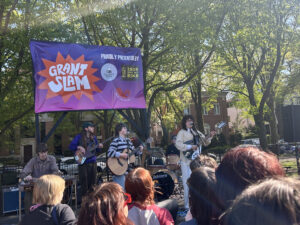

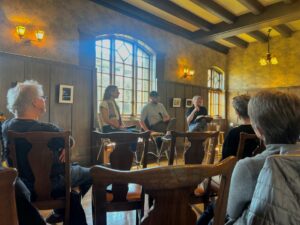





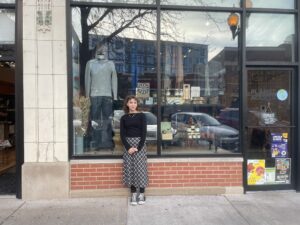

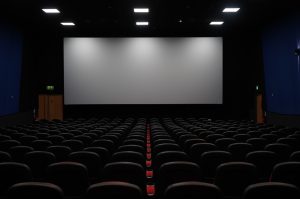



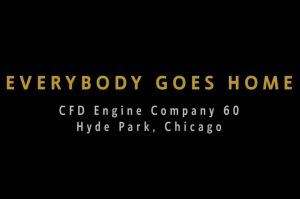
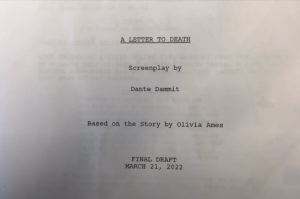
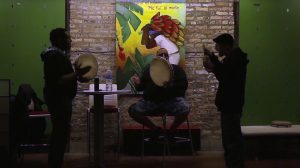
Be First to Comment